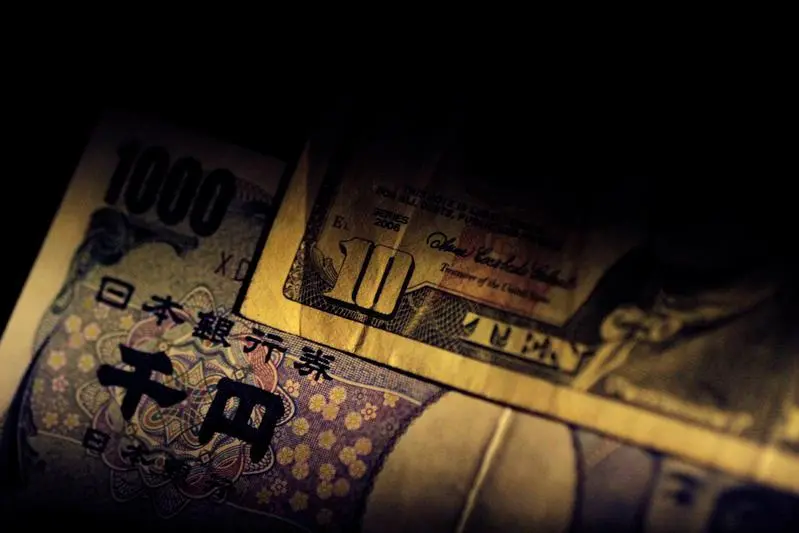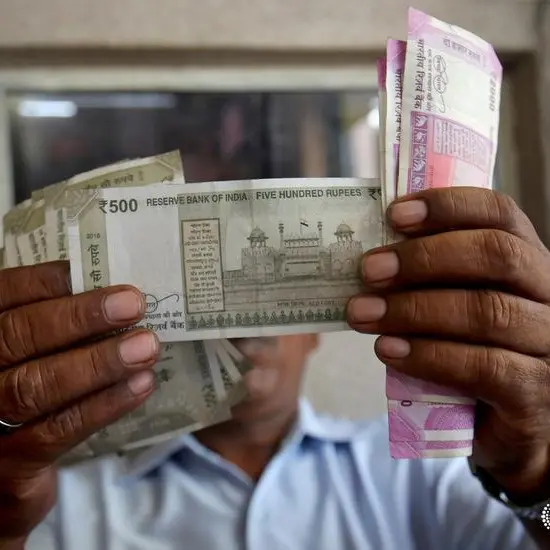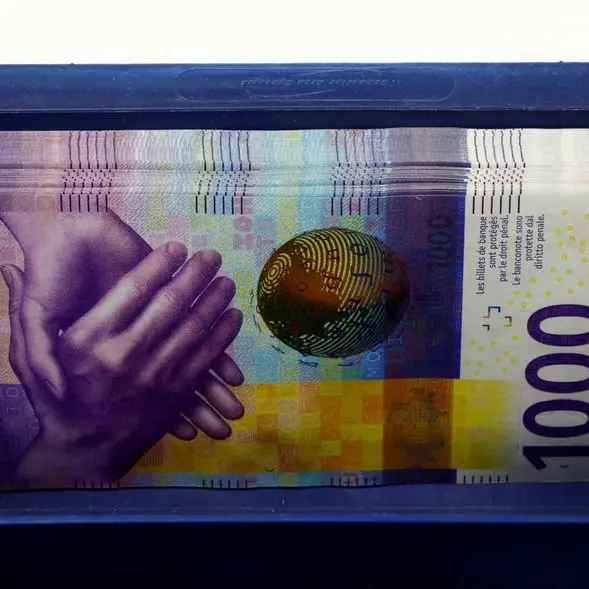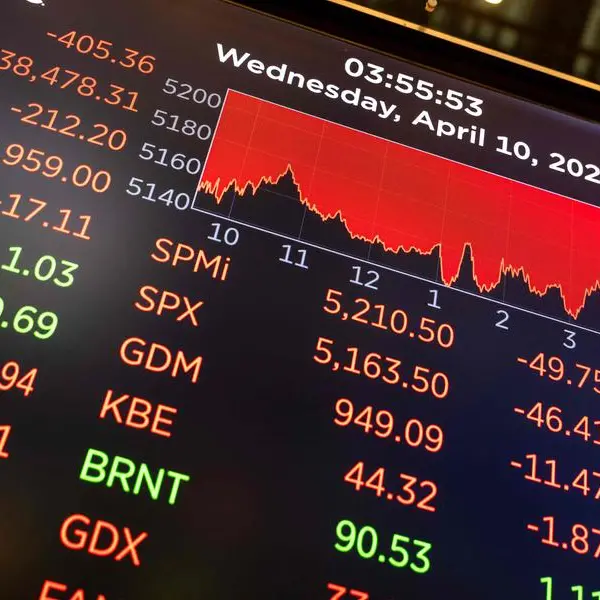PHOTO
22 July 2017
Saqib Iqbal Ahmed
New York - Speculators' bets on the U.S. dollar swung to a net short for the first time in more than a year, according to calculations by Reuters and Commodity Futures Trading Commission data released on Friday.
The value of the dollar's net short position, derived from net positions of International Monetary Market speculators in the yen, euro, British pound, Swiss franc and Canadian and Australian dollars, was $1.91 billion, in the week ended July 18.
That compares with a net long position of $62.5 million the previous week, and is the most short since mid-May 2016.
In a wider measure of dollar positioning that includes net futures contracts in the New Zealand dollar, Mexican peso, Brazilian real, and Russian ruble, the U.S. dollar posted a net short position valued at $7.67 billion, the largest since February 2013.
"This negative positioning reflects a change in sentiment surrounding the path of the dollar," said Sireen Harajli, FX strategist at Mizuho in New York.
"There has been quite a bit of uncertainty regarding the U.S. economy going forward, mainly because of the generally weaker economic performance, as well as high uncertainty regarding policy initiatives by the new administration," she said.
The greenback hit its lowest in more than a year against a basket of major rivals on Friday, a day after the European Central Bank's chief abstained from talking down the euro, while obstacles to U.S. President Donald Trump's policy agenda also weighed.
Investigations into alleged Russian meddling in the 2016 U.S. presidential election and possible collusion with Trump's campaign are viewed as obstacles to the administration's pro-growth agenda and negative for the dollar.
Net long positioning on the euro rose to 91,321 contracts, the highest in more than six years.
Traders' expectations that the ECB was staying the course toward tightening monetary policy and better-than-expected economic data in the euro zone has been supportive of the single currency, Harajli said.
Japanese yen net shorts, meanwhile, grew to their largest since January 2014, with 126,919 contracts, CFTC data showed.
The Bank of Japan sticking to a dovish message even as major central banks have signaled a little bit of a shift toward a more hawkish stance, is one of the reasons why investors are looking for a weaker yen, Harajli said.
Speculators this week turned bullish toward the Canadian dollar and positioning on the loonie turned net long for the first time since mid-March.
Reporting by Saqib Iqbal Ahmed; Editing by Diane Craft and Chris Reese
© Reuters News 2017
Saqib Iqbal Ahmed
New York - Speculators' bets on the U.S. dollar swung to a net short for the first time in more than a year, according to calculations by Reuters and Commodity Futures Trading Commission data released on Friday.
The value of the dollar's net short position, derived from net positions of International Monetary Market speculators in the yen, euro, British pound, Swiss franc and Canadian and Australian dollars, was $1.91 billion, in the week ended July 18.
That compares with a net long position of $62.5 million the previous week, and is the most short since mid-May 2016.
In a wider measure of dollar positioning that includes net futures contracts in the New Zealand dollar, Mexican peso, Brazilian real, and Russian ruble, the U.S. dollar posted a net short position valued at $7.67 billion, the largest since February 2013.
"This negative positioning reflects a change in sentiment surrounding the path of the dollar," said Sireen Harajli, FX strategist at Mizuho in New York.
"There has been quite a bit of uncertainty regarding the U.S. economy going forward, mainly because of the generally weaker economic performance, as well as high uncertainty regarding policy initiatives by the new administration," she said.
The greenback hit its lowest in more than a year against a basket of major rivals on Friday, a day after the European Central Bank's chief abstained from talking down the euro, while obstacles to U.S. President Donald Trump's policy agenda also weighed.
Investigations into alleged Russian meddling in the 2016 U.S. presidential election and possible collusion with Trump's campaign are viewed as obstacles to the administration's pro-growth agenda and negative for the dollar.
Net long positioning on the euro rose to 91,321 contracts, the highest in more than six years.
Traders' expectations that the ECB was staying the course toward tightening monetary policy and better-than-expected economic data in the euro zone has been supportive of the single currency, Harajli said.
Japanese yen net shorts, meanwhile, grew to their largest since January 2014, with 126,919 contracts, CFTC data showed.
The Bank of Japan sticking to a dovish message even as major central banks have signaled a little bit of a shift toward a more hawkish stance, is one of the reasons why investors are looking for a weaker yen, Harajli said.
Speculators this week turned bullish toward the Canadian dollar and positioning on the loonie turned net long for the first time since mid-March.
Reporting by Saqib Iqbal Ahmed; Editing by Diane Craft and Chris Reese
© Reuters News 2017












